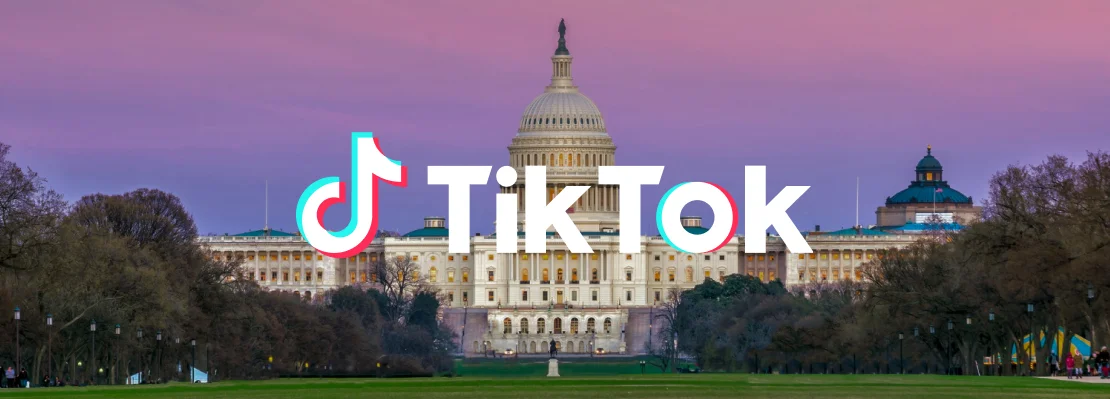
TikTok has taken the world by storm, becoming a powerful tool for brands to connect with audiences, especially in eCommerce. Its algorithm-driven platform allows businesses to showcase their products in creative ways, reaching consumers directly and organically. However, with growing discussions about a potential TikTok ban in the United States, many business owners are understandably concerned.
For eCommerce businesses, a TikTok ban could mean losing a platform that has driven significant visibility, engagement, and sales. While this scenario might feel daunting, it doesn’t have to spell disaster. By staying informed and taking proactive measures, businesses can adapt and thrive even without TikTok. In this blog, we’ll explore the current state of the TikTok ban, its significance for eCommerce, and actionable strategies to prepare for the future.
The Current State of the TikTok Ban
The potential TikTok ban stems from data privacy concerns and geopolitical tensions. Critics argue that TikTok’s ownership by ByteDance, a Chinese company, could pose risks to user data security, with fears that sensitive information could be accessed by foreign governments. These concerns have fueled legislative efforts in the United States, including proposed bans and restrictions on TikTok’s operations. Similar discussions are taking place in regions like the European Union, where data privacy is heavily regulated.
Past examples of platform restrictions, such as India’s complete TikTok ban in 2020, illustrate how these scenarios can play out. Following India’s ban, many brands had to shift their focus to alternative platforms, recalibrate their strategies, and rebuild their audience engagement elsewhere. This serves as a valuable lesson for U.S.-based businesses: while losing TikTok would be challenging, it’s not an insurmountable obstacle.
The Importance of TikTok for Businesses
TikTok’s meteoric rise as a marketing powerhouse is undeniable. For eCommerce businesses, it has become a vital tool for building brand visibility and boosting sales. Its short-form, engaging content format resonates with younger audiences, particularly Gen Z and Millennials, who are key demographics for online retailers.

TikTok’s algorithm is one of its standout features. Unlike other platforms, it pushes digital content to users based on their behavior and interests, allowing businesses to reach audiences they might not have targeted directly. This discoverability creates opportunities for brands to go viral and achieve significant ROI with minimal ad spend.
Industries such as fashion, beauty, fitness, and food have thrived on TikTok. Viral product trends like “TikTok leggings” or skincare routines have driven massive spikes in sales for featured brands. A TikTok ban could disproportionately affect these industries, highlighting the need for alternative strategies.
Preparing for a TikTok Ban
Diversify Your Social Media Strategy
Relying solely on TikTok for digital marketing is risky. Start exploring alternative platforms like Instagram Reels, YouTube Shorts, and Snapchat Spotlight. These platforms offer similar short-form video capabilities and can help maintain engagement with your audience.
Build a Multi-Channel Presence
Beyond social media, invest in long-term strategies like email marketing, search engine optimization (SEO), and content marketing. These channels provide direct communication with your audience and aren’t dependent on third-party platforms.
Leverage User-Generated Content (UGC)
If you’ve accumulated TikTok content, don’t let it go to waste. Save and repurpose those videos for other platforms. UGC can also be integrated into email campaigns, blogs, or even your website, maintaining the authenticity and relatability your audience loves.
Focus on Owned Media
Owned media, such as your website and email list, gives you full control over your brand’s communication. Use these channels to share updates, engage customers, and promote products without the risk of platform bans.
Alternative Platforms to Explore
While no platform can fully replace TikTok, several alternatives offer unique opportunities for businesses:
- Instagram Reels: With its established user base and integration with Facebook, Instagram Reels is a strong contender for short-form video marketing.
- YouTube Shorts: Ideal for brands with a focus on video content, YouTube Shorts benefits from YouTube’s existing infrastructure and massive reach.
- Snapchat Spotlight: While Snapchat is often overlooked, its Spotlight feature caters to a younger audience and allows for creative video marketing.
- Pinterest Idea Pins: For brands in DIY, fashion, or home decor, Pinterest offers a visually-driven platform to inspire and convert customers.
- Threads and X (formerly Twitter): These platforms are great for fostering discussions, sharing bite-sized updates, and driving traffic to your website or products.
Lessons from Other Platform Bans
Businesses have weathered similar challenges before. The Facebook ad restrictions during the iOS 14 update, for instance, forced marketers to rethink targeting strategies. Similarly, algorithm changes on Instagram have prompted brands to focus on engaging content rather than simply chasing likes.
Resilience and adaptability are crucial. When platforms change or become unavailable, businesses that diversify their strategies and stay connected with their audience can thrive. The TikTok ban presents an opportunity to reassess and strengthen your overall marketing approach.
Conclusion
The potential TikTok ban is a reminder of the ever-changing nature of digital marketing. While the platform has been a game-changer for many businesses, its uncertain future underscores the importance of flexibility and diversification.
By preparing for a TikTok ban, you’re not just mitigating risks—you’re future-proofing your marketing strategy. Diversify your efforts, explore alternative platforms, and invest in owned media to build a sustainable foundation for your business. In the dynamic world of eCommerce, adaptability is the key to long-term success.

 Eashan Mehta
Eashan Mehta




